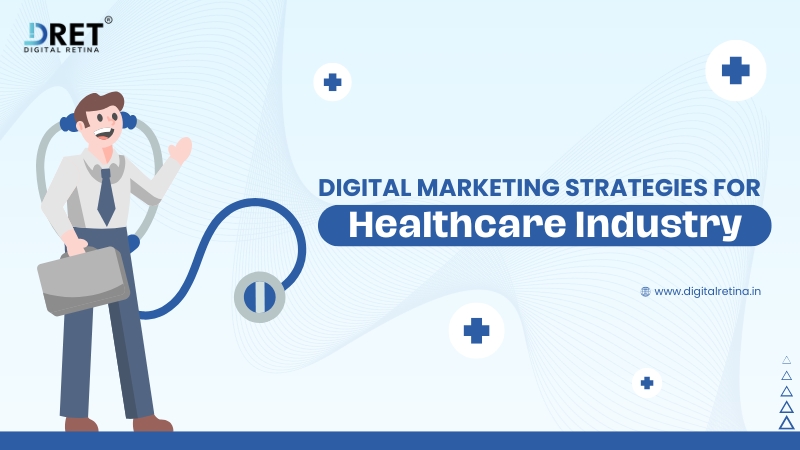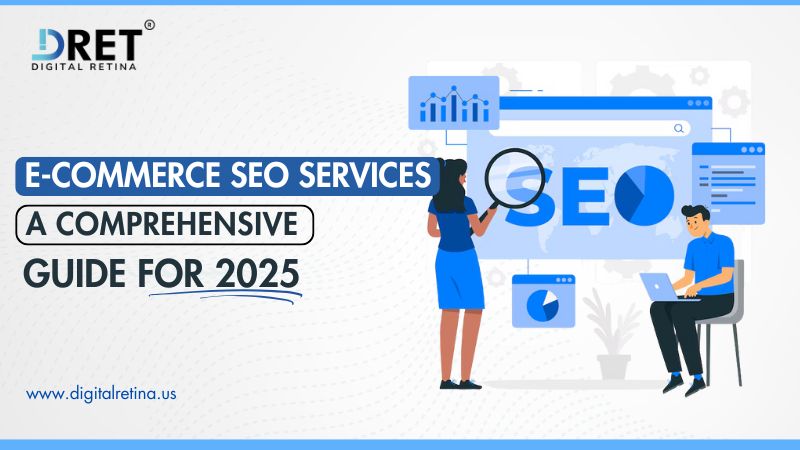The world has gone digital—and healthcare is no exception. In an era where patients Google their symptoms before booking an appointment and leave reviews that can make or break a clinic’s reputation, healthcare providers must embrace a well-structured digital marketing strategy to stay competitive and patient-focused.
Whether you’re a solo practitioner or managing a multi-location hospital chain, it’s time to explore how Healthcare Digital Marketing Strategies can attract, retain, and engage your target audience.
What Is Healthcare Digital Marketing?
Healthcare digital marketing is the strategic promotion of medical services, healthcare institutions, and wellness practices through digital platforms. It’s not just about having a website—it’s about creating a robust digital ecosystem that enhances visibility, builds trust, and improves patient engagement. From search engines to social media, the goal is to connect with potential patients where they are already spending time online.
Key components include website design, healthcare SEO, content marketing, social media presence, online advertising, and reputation management. Together, these tools form a cohesive digital marketing strategy that helps healthcare providers educate their audience, provide real value, and convert online traffic into loyal patients.
- Website Design & UX: Your digital front door—designed for ease, speed, and trust.
- Search Engine Optimization (Healthcare SEO): Ensures your services appear in relevant search results.
- Content Marketing: Educates, informs, and builds authority through blogs, videos, and guides.
- Social Media Engagement: Builds community trust and fosters patient relationships.
- Paid Ads: Delivers fast visibility and highly targeted outreach.
- Reputation Management: Protects and strengthens your credibility with reviews and feedback.
- Integrated Digital Strategy: Aligns all components to attract, engage, and retain patients effectively.

Why Is Healthcare Digital Marketing Necessary?
Healthcare consumers are changing. Today’s patients:
- Use Google before going to a doctor.
- Expect fast answers, transparency, and easy communication.
- Prefer digital interactions—online booking, virtual consultations, health apps.
According to a study by Accenture Health, 70% of patients prefer digital interactions with their healthcare providers. That’s a wake-up call for clinics still relying solely on billboards and brochures.
Benefits of a strong digital presence:
- Increased visibility: Show up when and where people are searching.
- Better patient education: Educated patients make better decisions.
- Higher engagement: Keep your brand top-of-mind.
- Boosted ROI: Cost-effective and measurable results.
Improved patient experience: Through convenience and connection.
The Role of Digital Marketing in Healthcare
Digital marketing isn’t just about selling services—it’s about building relationships, earning trust, and delivering value.
Key roles digital marketing plays in healthcare:
- Empowering Patients
Through blogs, videos, and FAQs, digital marketing helps patients become more informed about their conditions, treatment options, and preventive measures. - Enhancing Access
Telemedicine, chatbots, and mobile apps reduce waiting times and improve accessibility. - Streamlining Communication
Email newsletters, SMS reminders, and live chat offer real-time, personalized communication. - Strengthening Brand Reputation
Consistent messaging, thought leadership, and patient testimonials build trust in your services. - Leveraging the Digital Single Market Strategy
- For healthcare providers in the EU, the digital single market strategy aims to unify digital health systems, enabling easier cross-border access and collaboration. Aligning your strategy with this vision can future-proof your operations.

6 Digital Marketing Strategies to Leverage
Let’s break down six key Healthcare Digital Marketing Strategies that drive results in 2025 and beyond:
1. Healthcare SEO: Be Found When It Matters Most
Healthcare SEO is the cornerstone of visibility. It involves optimizing your website so it ranks on top when patients search for services like “best ENT specialist near me” or “child vaccination clinic.”
Key tactics:
- Keyword research: Target long-tail keywords with local intent.
- On-page SEO: Use proper headers, schema markup, and alt tags.
- Technical SEO: Ensure fast loading, mobile-friendliness, and clean site architecture.
- Local SEO: Optimize your Google Business Profile, get listed on local directories, and gather positive reviews.
💡 Bonus tip: Start a blog that answers common patient questions like “Is this rash serious?” or “What’s the difference between a cold and the flu?”
2. Content Marketing: Educate, Inform, Empower
Content builds credibility and trust. Patients want to understand their health conditions and the services you offer—on their terms.
Content types that work:
- Educational blog posts
- Explainer videos
- Case studies and patient stories
- Checklists and guides (e.g., “Surgery Prep Checklist”)
- FAQs and glossary pages
Content + SEO = Visibility + Authority.
If you’re wondering what is digital marketing strategy at its core—this is it: creating value for your audience and guiding them toward informed decisions.
3. Social Media Marketing: Build a Health Community
Social media is where conversations happen. And yes, healthcare is part of that.
Top platforms:
- Facebook: Share articles, promote events, host live Q&As.
- Instagram: Behind-the-scenes content, patient testimonials, reels about health tips.
- LinkedIn: Thought leadership, B2B networking.
- YouTube: Medical procedures, explainer videos, patient success stories.
Be human. Be helpful. Be consistent.
4. Email Marketing: Stay Top-of-Mind
Email marketing remains one of the most effective and low-cost ways to engage patients.
Use it for:
- Appointment reminders and confirmations
- Health tips and seasonal advice (e.g., allergy season prep)
- Preventive care notifications
- Post-visit follow-ups
- Birthday greetings and thank-yous
Use segmentation to tailor messages by age, condition, or visit history.
5. Online Reputation Management: Trust is Everything
Patients trust online reviews more than traditional advertising.
How to manage your reputation:
- Claim your profiles (Google, Healthgrades, Yelp)
- Ask for reviews after positive visits
- Respond to all reviews with empathy and professionalism
- Monitor mentions across social media and review sites
💡 Tip: Turn good reviews into visual testimonials for your website and social channels.
6. Paid Advertising: Reach the Right Patients Fast
Organic reach takes time. That’s where paid advertising comes in.
Top ad platforms:
- Google Ads: For targeted keywords (e.g., “urgent care open now”)
- Facebook/Instagram Ads: For demographic targeting and local awareness
- Display Ads: Retarget people who visited your website
Pair paid ads with your SEO strategy to maximize exposure across the entire patient journey.

Mobile Marketing in the Healthcare Industry
Over 65% of online health searches are done on mobile. This makes mobile optimization a must, not a maybe.
Mobile marketing tactics:
- SMS campaigns: Appointment reminders, medication alerts
- Mobile-friendly websites: Fast, responsive, easy to navigate
- Apps: For appointment booking, telehealth access, prescriptions
- Location-based services: Send alerts or deals when patients are nearby
Incorporate mobile responsiveness into every piece of your digital marketing strategy—because if it doesn’t work on a phone, it doesn’t work.
The Future of Digital Marketing for Healthcare
The future is data-driven, AI-powered, and hyper-personalized.
Trends shaping the future:
- AI & Chatbots: 24/7 engagement for appointment booking, symptom triage, and FAQs.
- Voice Search Optimization: Prepare for voice assistants (“Hey Siri, where’s the nearest urgent care?”)
- Augmented Reality (AR): Virtual tours of facilities, interactive patient education
- Predictive Analytics: Target at-risk patients before they need emergency care
- Cross-border patient access: As the digital single market strategy matures, patient records, teleconsultations, and billing can move more seamlessly across borders in the EU.
Final Thoughts
Now that we’ve explored what is digital marketing strategy for the healthcare sector, the takeaway is clear: to grow, you need to go digital.
Whether it’s leveraging Healthcare SEO, engaging through content, managing reviews, or adopting mobile-first practices, the digital landscape offers endless opportunities for growth and better patient care.
At Digital Retina, we help healthcare brands craft innovative, compliant, and impactful Healthcare Digital Marketing Strategies that deliver measurable results. Let’s create something powerful—your patients (and future ones) are already online.









